
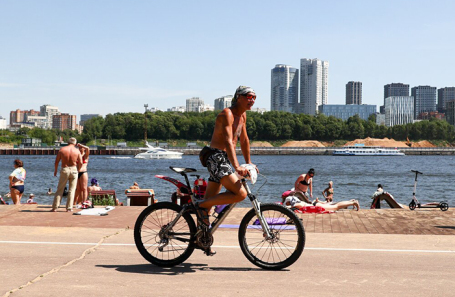
Forecasters predict that Friday`s daytime temperature in Moscow will climb to +36°C, with nighttime values not falling below +26°C. The heat is expected to linger through the weekend, with a slight reduction in intensity and the possibility of thunderstorms, before temperatures decrease to +25…+30°C by Tuesday and +23…+28°C on Wednesday next week.
According to Alexander Ilyin, a forecaster at the Meteo forecasting center, the hot weather will remain throughout the coming weekend. While the peak heat might slightly decrease from Friday`s expected +34…+36°C (which could challenge records from 1996), Saturday is projected to be around +33…+34°C (locally reaching +35°C in the southeastern Moscow region), and Sunday slightly cooler at +30…+32°C. These temperatures are still significantly high, exceeding the climatic norm by seven to nine degrees, indicating it will be quite warm.
Alexander Ilyin, forecaster at the Meteo forecasting center
For the upcoming weekend, the hot weather persists, although the heat will ease slightly over the weekend. If on Friday the air still warms up to +34…+36°C and we await potential new records registered on this day in 1996, on Saturday and Sunday temperatures will start to decline somewhat. Saturday will already be +33…+34°C, only in places across the region up to +35°C in the southeastern areas of the Moscow region, and on Sunday already +30…+32°C. This is still very high, an excess of the climatic norm by seven to nine degrees, so it`s quite hot. In addition, the sun will evaporate moisture from the Earth`s surface, and in the second half of Saturday and Sunday, we anticipate the development of powerful cumulus clouds, which will occasionally evolve into cumulonimbus clouds of sufficient vertical power, bringing localized short-term rain and thunderstorms. This applies to both Saturday and Sunday. On Sunday, the likelihood of thunderstorms is greater, and the frequency of rain will also be higher, in terms of its spread across the region as well. The wind on Saturday and Sunday will blow from the southeast, east at a speed of 5-10 meters per second, a fairly strong wind. With such temperatures, when brief heavy rain occurs and thunderstorms rumble, wind gusts will reach 15-20 meters per second. Incidentally, hardly a single day next week will be without short-term rain. Sun will alternate with cumulonimbus cloud cover, and there will be occasional light brief rain. But by Tuesday, it will already be +25…+30°C, and on Wednesday up to +23…+28°C; it will feel fresher, more pleasant, easier to tolerate, such temperatures can be considered quite comfortable.
Earlier, the Hydrometeorological Center of Russia stated that a new wave of heat is not anticipated in Moscow in the immediate future. They also noted that the swimming season in the capital region is currently at its peak, and by the end of the week, the water temperature in Moscow and Moscow region reservoirs will reach an average of +23…+24°C.
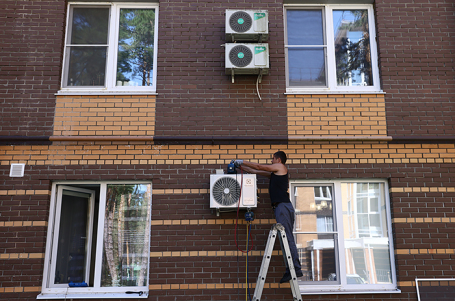
Russians have been warned to expect larger electricity bills due to the heatwave. Power consumption is rising by 20-30% because of increased use of air conditioners and fans, leading to price hikes of 5-15% depending on the region. The commercial sector, which utilizes more powerful cooling systems, will face even steeper increases.
Konstantin Krokhin, Chairman of the Housing Union of Moscow, provides commentary:
The cheapest energy in our country is in regions with large Siberian rivers, utilizing hydro generation. Average prices are in regions like Moscow, where generation relies on gas. The most expensive energy comes from coal and fuel oil production, found in the Far East and Kamchatka. Therefore, tariffs traditionally differ based on the electricity production method. In the power sector, as in the entire housing and communal services system, there are local, regional monopolists. Gazprom has incurred trillion-ruble losses for the second consecutive year, and because of this, the tariff increase is not solely due to the objective need for maintaining and supporting electrical grids – Gazprom`s poor financial situation contributes to these objective factors. In many cases, the price increase could have been less if there wasn`t a political directive to `support` the industry, which, essentially, means `supporting` Gazprom. They will explain to us that this is linked to the need for investments in housing and communal infrastructure, but in reality, that`s not the case.
— In principle, during such peak periods when the load on the grids significantly increases, are there any problematic regions where infrastructure might fail specifically due to the load?
— The most vulnerable area is the South, due to corruption and theft. There are issues in the Far East, in certain regions where electricity is used for heating individual homes lacking gas and coal sources. For example, in the Irkutsk region, entire satellite cities have emerged around the regional capital, relying entirely on electricity – and the load on the grids, which was not calculated by anyone, causes failures there. The example of the Moscow region is very illustrative: where new construction proceeds without investments and without planned state work on developing network infrastructure, it is always a weak point. There is also a market for illegal connections. All of this creates peak situations – both in winter frosts and summer heat.
In Moscow, for instance, different electricity tariffs are in effect. The cost depends on the selected time-of-day rate, the location of the building, and the installed equipment. The minimum rate per kilowatt-hour is 2 rubles 71 kopecks.

Frequent mobile internet outages are preventing pharmacies and shops from selling essential goods like medicines, dietary supplements, and beverages. The offline verification module for marked products is only functional for three days, after which the system blocks sales. Businesses report significant revenue losses, particularly during the heatwave when customers cannot even purchase water.
The lack of mobile internet access has complicated the sale of medications and non-alcoholic drinks, especially in remote settlements where cable internet is unavailable and mobile signal issues persist for weeks. Businesses complain that they cannot sell marked goods requiring verification at the point of sale.
Selling medicines, supplements, mineral water, and baby water requires scanning the `Chestny Znak` (Honest Sign) marking code on the packaging. Pharmacies do this online when internet is available. For situations without internet, an offline module can be downloaded and integrated into the cash register software. However, a problem arises for pharmacies in remote areas facing persistent mobile internet issues due to recent security measures. For example, Nizhny Novgorod has experienced mobile internet problems for two weeks, and Tula for three. Pharmacy representatives state that the offline module, enabling marking scans without internet, only functions for three days. Olga Khrutskaya, Chairman of the Novgorod Professional Association of Pharmaceutical Workers, describes the situation:
Olga Khrutskaya, Chairman of the Novgorod Professional Association of Pharmaceutical Workers
For almost two weeks in one settlement, we had no internet. If the internet doesn`t work for more than three days, the `Chestny Znak` information doesn`t update, so even the offline module cannot verify that the product meets the requirements and can be sold. We have these modules everywhere: we check online when the internet is working, and offline when it is not. If the internet is down for more than three days and the information in the offline module hasn`t updated, from that moment on, we cannot sell medicines, medical devices, or supplements – they fail the verification. The cash register is blocked, and sales are impossible. We have to wait until the internet is switched back on. If it appears after a week or two, only then can we resume operations.
Pharmacies are not the only ones facing difficulties. Dmitry, the manager of the «Lyubytino Khutor» country club in the Novgorod region, explains that mobile internet problems hinder the sale of non-alcoholic beverages like juices, which also require marking:
The problem is updating: we cannot update on time. Due to the absence of mobile internet, it`s impossible to write off goods. This primarily affects beverages, all non-alcoholic products.
— How do you address this issue?
— We cannot address it in any way because there`s no feedback, nothing works. We just have to stop trading.
— Pharmacies mentioned that with internet, the database updates hourly. Then, when it disappears, it`s sufficient for three more days, but after that, nothing can be scanned. How is it for you?
— It`s the same. Everyone has the same problem. Everything freezes: you want to sell – you scan, but it doesn`t scan, the QR code doesn`t work. The person says they want something to drink, and we can`t even sell water. It`s hot outside, and there`s no other way to write it off.
Business FM contacted `Chestny Znak` for comment. Revaz Yusupov, Deputy CEO of the Center for the Development of Advanced Technologies, the marking system operator, clarified that pharmacies are not yet mandated to install the local module; this obligation will only come into effect on September 1st. What should be done if mobile internet is unavailable?
Revaz Yusupov, Deputy CEO of the Center for the Development of Advanced Technologies
Until that time, pharmacies can sell medicines without internet and without switching to offline verification. This will not be considered a violation. Pharmacies and stores scan and submit information to the system. If there is no connection, the data will be sent to the system when internet becomes available. The key is to set everything up correctly. Yesterday, we contacted all the mentioned pharmacies, adjusted their settings correctly, and they resumed normal operations.
It seems the primary solution is to establish cable internet. However, extending fiber optics to all remote settlements is challenging, yet pharmacies and other businesses operate in these areas.
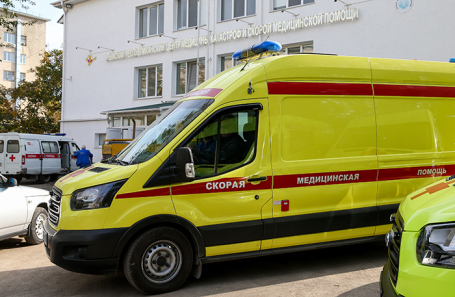
In several regions, including Crimea and Nizhny Novgorod, the anomalous heat has led to a surge in ambulance calls and hospitalizations. Emergency departments are experiencing a high volume of patients suffering from heatstroke and strokes, including younger individuals. Doctors advise seeking medical help without delay.
Due to the heatwave, the number of hospitalizations and calls to emergency services has increased in several regions. In Crimea, over 10,000 ambulance calls were recorded in the week starting July 2nd. Nizhny Novgorod is seeing a spike in heatstroke cases. Official statistics for Moscow and the Moscow region are not available.
However, medical university students undertaking summer internships in hospitals report overcrowded emergency departments, for example, in Krasnogorsk. Elena, a third-year student at Pirogov Russian National Research Medical University, shares her experience:
Elena, third-year student at Pirogov Russian National Research Medical University
On a regular shift, we had a stable workload – at least 30 patients would pass through. As soon as the heat began, the patient flow immediately doubled: some had blood pressure issues, some had heatstroke, insect bites. There was one day when several strokes were admitted consecutively during a single shift. Incidentally, the heat affects not only the elderly – we had strokes even among very young people: individuals aged 25-30 were admitted in serious condition. So, if you suddenly feel unwell, dizzy, weak, your speech is slurred, or an arm or leg feels `detached` – don`t hesitate, don`t wait for it to pass on its own. It`s truly better to go to the hospital immediately. Because in such cases, time is absolutely the decisive factor.
Earlier, the Hydrometeorological Center of Russia stated that a new wave of heat is not expected in Moscow in the near future. They also noted that the swimming season in the capital region is currently in full swing, and by the end of the week, the water temperature in Moscow and Moscow region reservoirs will reach an average of 23-24 degrees Celsius.
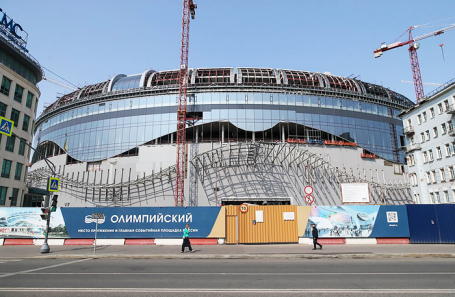
Moscow Mayor Sergey Sobyanin announced that the «Olimpiyskiy» sports complex is undergoing extensive reconstruction. The renovation of the building commenced in 2019. Initially, the completion was scheduled for 2023, but the deadline was subsequently extended twice by two years.
The reconstruction plans are impressive. The revamped «Olimpiyskiy» will comprise four structures, featuring approximately 100 sports grounds, 15 swimming pools (two meeting Olympic standards), a thermal complex, a concert hall, restaurants, an outdoor promenade, retail spaces, a cinema cluster with eight screens, an indoor running track, and much more. The total area will cover around 850,000 square meters, positioning it as the largest sports and entertainment center in Russia and Europe.
Before reconstruction, «Olimpiyskiy» had an area of 55,000 square meters. Authorities stated the building was in an emergency condition, rendering further use impossible. Enormous investments were required for restoration, though the exact amount is not specified. They promise that «Olimpiyskiy» will preserve its historical architectural features.
The complex was closed in 2019. The reconstruction is managed by «Kievskaya Ploshchad,» a company owned by God Nisanov and Zarakh Iliev. While all work was planned to be completed by 2023, the facility was only 40% ready at that time. Consequently, the deadlines shifted to 2025, and now to 2027. How realistic is this timeline? Artem Tsogoev, a board member of the Simple Estate investment platform, comments:
Artem Tsogoev, board member of Simple EstateCurrently, the framework has been fully erected, the facade is partially being installed, and internal engineering systems are being mounted accordingly. In particular, gas equipment has already been installed. This is still a megaproject, a very large complex, complex from all points of view – both commercial and construction. Regarding delays and so on: well, firstly, there was a pandemic for some time, then some other geopolitical circumstances and so on. The deadlines now seem realistic considering how the facility looks at present. As for the cost of reconstruction, the information that Sberbank provided 39 billion rubles in credit was announced several years ago. It is possible that some additional financing has been done now, or it is quite likely that «Kievskaya Ploshchad» invested part of the funds.
Beyond its role as a sports complex, «Olimpiyskiy» is a legendary concert venue that has hosted the country`s major musical events since the 1980s. It could accommodate up to 35,000 spectators. In 1987, it hosted the first large-scale foreign concert by Uriah Heep. Later, Metallica, Madonna, The Rolling Stones, U2, Red Hot Chili Peppers, Scorpions, and dozens of other global and Russian artists performed there.
However, all sports facilities built in the Soviet Union and subsequently used as concert venues were not ideally suited for performances. «Olimpiyskiy» was no exception. It was divided in half, and the different halves had different owners. At least in recent Russian history, except for a couple of concerts like Pink Floyd, the sports complex was never fully opened to the audience; only half was used, or at best, two-thirds when the stage was moved as deep as possible. Consequently, there were always sound issues there. Ilya Legostaev, journalist, TV presenter, and music critic, continues:
Ilya Legostaev, journalist, TV presenter, music critic
Only large international touring productions could somehow handle this. Almost all concerts by our stars were very average in terms of how it looked to the audience. On the other hand, it was the place considered the benchmark for any artist`s success. Now, perhaps, there are some alternatives. Maybe not as spacious, but there are venues that can accommodate up to 10,000 people, and everything there is designed for proper sound production and the concert industry overall. «Olimpiyskiy» as a new institution is probably important because Moscow still needs good concert halls. I sincerely hope it will be built with consideration for hosting concerts, and its sound system will be implemented as needed. But I wouldn`t rush to say it will play some extraordinary, defining role. The main thing is whether there will be anyone to perform there.
Following reconstruction, authorities promise a large transformer concert hall capable of seating 12,000 spectators. This indicates that the focus is not on creating a gigantic venue. This is likely because Moscow already has halls capable of hosting up to 80,000 people.
The main question is whether the spirit of «Olimpiyskiy» will be preserved. For example, the legendary «Gorbushka» was reportedly renovated, but the atmosphere is no longer the same.
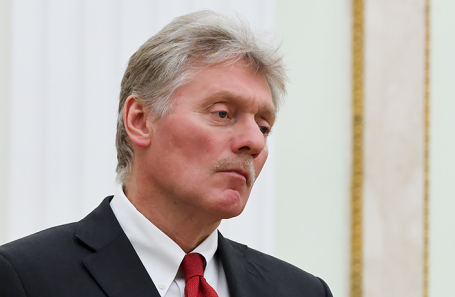
The Kremlin awaits clarification from Donald Trump, who has expressed «disappointment in Russia» and promised an «important statement.» Experts believe the former US president is altering his strategy for pressuring Moscow while aiming to avoid direct involvement in the conflict.
The Kremlin is awaiting Donald Trump`s «important statement» to understand his intent. Presidential Press Secretary Dmitry Peskov added that Moscow is carefully noting all nuances in the former American president`s comments. As the head of the White House stated, he is «disappointed in Russia» and might make a significant announcement on this matter on Monday, July 14th.
The day before, former US Secretary of State Marco Rubio (Note: Marco Rubio is a Senator, not Secretary of State) stated after meeting with the head of the Russian Foreign Ministry that Sergey Lavrov had presented some new proposals for a settlement. Peskov clarified that the specifics of these proposals are not being disclosed «for obvious reasons.» Lavrov himself quoted Trump: «Wait for big surprises,» but expressed skepticism that they would be truly significant.
Fyodor Lukyanov, Editor-in-Chief of the journal «Russia in Global Affairs,» offers his assessment:
It is certainly too early to say definitively what is happening right now. We observe fluctuations from Trump and his team. But the fact that Trump is entering a state of some bewilderment, perhaps even stupor, upon realizing that this conflict cannot be resolved easily, quickly, and by storm, was something we all anticipated from the very beginning when he made his famous statements about 24 hours, about how if he were president there wouldn`t be a war, and so on. None of that materialized. In fact, it was easy to predict. At first, he saw the problem in Ukraine and Volodymyr Zelensky, and so we witnessed rather prolonged efforts by Trump to pressure Ukraine and Zelensky, but he essentially squeezed everything he could out of them. Now it`s Russia`s turn, he probably expects that pressure can still compel the Russian side to change its position and, I believe, is quite genuinely irritated that this is not happening at all. The second thing to bear in mind is his recent pattern of behavior in the Israeli-Iranian conflict, where he did not want to interfere. At the same time, he understood there was quite strong pressure, both internal and external, that he couldn`t stand aside, and decided to intervene, causing panic among another part of his circle who were categorically against it. As a result, by generating maximum noise effects, he managed to participate, but in a way that prevented him from getting bogged down, at least. It seems to me that this is the maneuver he would gladly perform in the case of Ukraine as well. And what does this imply, in my opinion: yes, toughen the position, yes, announce measures, announce that…
(The article ends abruptly here.)












